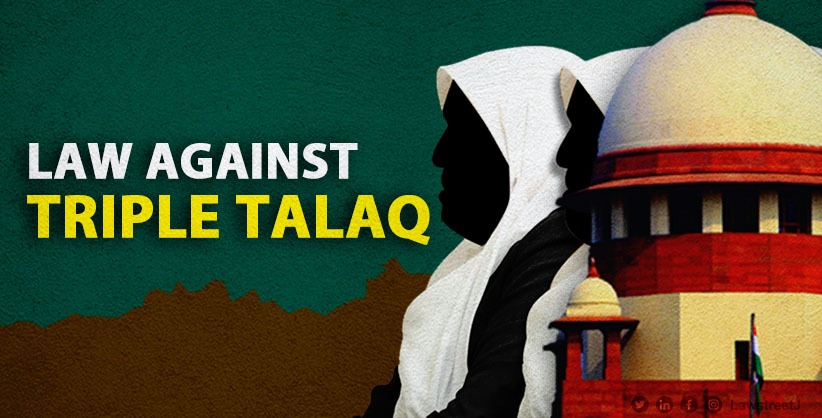NEW DELHI: The Centre has defended before the Supreme Court its law to make triple talaq a punishable offence with maximum three years jail term, saying despite the Constitution bench decision to ban 'talaq-e-biddat' and assurance by the All India Muslim Personal Law Board, there have been reports of such divorces in Muslim community.
"It was seen that setting aside talaq-e-biddat by this court has not worked as any deterrent in bringing down the number of divorces by this practice among certain Muslims. Therefore, it was felt that there is a need for State action to give effect to the order of this court and to redress the grievances of victims of illegal divorce," it said.
The government said the Parliament in its wisdom has enacted the Act to protect the rights of married Muslim women who are being divorced by triple talaq.
"The impugned Act helps in ensuring the larger constitutional goals of gender justice and gender equality of married Muslim women and helps subserve their fundamental rights of non-discrimination as also their empowerment," it said.
The government also said this court has consistently held that the Supreme Court cannot go into the wisdom of the measure, but only its constitutionality of legislation.
The government filed an affidavit in a writ petition filed by Amir Rashadi Madani challenging the validity of the 2019 law against triple talaq.
"When this court in the matter of Shayara Bano case, in a majority judgment of 3:2, had set aside the practice of talaq-e-biddat (three pronouncements of talaq, at one and the same time) by certain Muslim husbands to divorce their wives and if such an act is declared to be an offence punishable under law, with due deference, this Court ought not to interfere into the legislative enactment of making punishable such a manifestly arbitrary act which is already declared under law to be violative of Article 14 of the Constitution," the government said.
As the practice continued, the victims of talaq-e-biddat have no option but to approach the police for redressal of their grievances and the police were helpless as no action could be taken against their husbands in the absence of punitive provisions in the law.
"Therefore, in order to prevent the practice, it was felt that there was an urgent need for stringent provisions in the law which act as a deterrent to Muslim husbands divorcing their wives by adopting instantaneous and irrevocable talaq. Accordingly, the Muslim Women (Protection of Rights on Marriage) Ordinance, 2018 under article 123 of the Constitution was promulgated by the President on 19.09.2018 and was later enacted as the Muslim Women (Protection of Rights on Marriage) Act, 2019," the Centre said.
"If an act is found to be manifestly arbitrary and unconstitutional by this Court and if such an act is declared to be an offence punishable under law, the Court cannot interfere with the legislative act of making punishable such arbitrariness already declared under law to be violative of the provisions of the Constitution," it submitted.
The government also said the legislature is presumed to be supremely wise and aware of the needs of the people and the measures that are necessary to meet those needs.
"The court cannot interfere with the prescribed punishment even if the punishment is perceived to be excessive. In the impugned Act, the punishment prescribed is just, proper and reasonable, commensurate with the offence committed. No husband has any right to unilaterally pronounce triple Talaq and divorce his wife instantaneously, in an unreasonable and illegal manner, which has no support of any law for the time being in force," it said.
However, a legislation cannot be challenged only on the ground that it its unreasonable or that it is not to the liking of a particular person or group of persons.
"The impugned Act is a piece of legislation which has been brought into force to help in ensuring the larger constitutional goals of gender justice and gender equality of married Muslim women and it will also help to subserve their fundamental rights guaranteed by the Constitution," it said.
"In spite of this court setting aside the practice of talaq-e-biddat in the Shayara Bano case, the said practice was continuing unabated. In the absence of any punitive provisions in the extant laws, the law enforcing agencies were helpless and no action could be taken against the errant husbands by the Courts. Therefore, to prevent the aforesaid practice, it was felt that there was an urgent need for stringent provisions in the law which acts as a deterrent to Muslim husbands divorcing their wife by adopting instantaneous and irrevocable talaq. Thus all forms of talaq has not been made punishable under the Act and the averments of the petitioner that the Act is violative of articles 14 and 21 of the Constitution is not tenable," the affidavit said.















